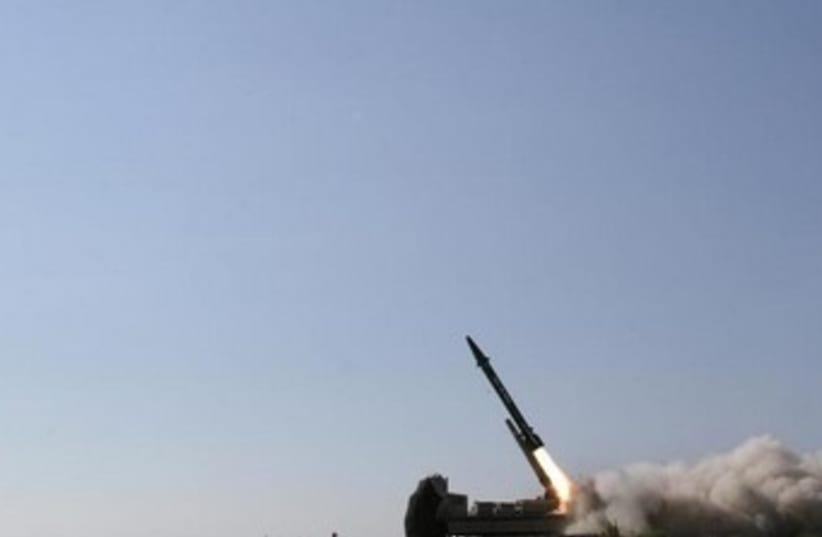Israel’s enemies are arming themselves with precision-guided heavy rockets and will inevitably come to possess GPS-guided ballistic missiles, an architect of the Israeli missile defense program warned on Wednesday.Speaking at a conference called Missile Defense: Asset or Liablity for Regional and International Stability, held at the Institute for National Security Studies (INSS) in Tel Aviv, Dr. Uzi Rubin warned that the growing threat is strategic, not merely tactical.Rubin, who founded and directed the Defense Ministry’s Israel Missile Defense Organization, and ran the Arrow program, said that “Iran possess over 400 ballistic missiles that can reach Israel, with warheads of 750 kilograms. Syria possesses 200 to 300” such missiles, having used up part of its arsenal in its civil war, he added.
Syria and Hezbollah have thousands of heavy rockets, and tens of thousands of light rockets, Rubin continued.“That’s the bad news. The worse news is that these rockets are being turned into smart rockets. The Iranians took the Zilzal 2 and turned it into a guided rocket. The third generation of it contains a homing sensor and a GPS. The Syrians can have this capability too, to create a fully guided M-600 rocket with GPS. Hezbollah probably has these,” he said.The M-600 carries a 500-kilogram warhead, and a guided version of it would be a devastating weapon, Rubin warned.He showed a photograph of Tel Aviv and the Defense Ministry/IDF General Headquarters site, the Kirya, saying one M-600 strike could collapse half of the area.“That would change the skyline of Tel Aviv. This is not a tactical threat, it’s not harassment. This is a strategic threat. Even worse news is coming; ballistic missiles are becoming smart,” he said.In the next five to 10 years, Israel’s enemies will inevitably arm themselves with GPS-guided ballistic missiles such as Scuds, he said..“Perhaps Syria already has this capability,” Rubin said. “This can significantly disrupt Israel’s air power. Israel will of course recover.We are talking about escalating a war to quicken it, and end it within three days. They are talking about doing the same. This threat can degrade the IDF’s ground capabilities” via accurate missile strikes on army mobilization and staging grounds, Rubin warned.“It can paralyze Israel’s war economy. And of course, it can inflict massive casualties.I’m not talking about Dresden, but Coventry, perhaps,” he said, referring to cities bombed in World War II.In such a scenario, the IDF would not be able to use its missile defenses to protect the general population, but rather, they would primarily be employed to “preserve Israel’s capability to fight a war, and save lives as far as possible. Priorities will inevitably change,” he said.The introduction of nuclear weapons would not replace conventional threats, but create an additional layer of nonconventional ballistic threats, Rubin said.Missile defenses already in place could intercept incoming nuclear missiles, he added. “Anything that can intercept a missile from Iran doesn’t give a damn if it’s nuclear or nonnuclear. Missile defense systems don’t distinguish between warheads.”The upper atmosphere Arrow 2 system, and the more efficient Arrow 3 interceptor, which operates in space, will constitute the defensive against any nuclear attacks.“Global and regional players” consider Israel to have a nuclear deterrence, Rubin added. Missile defenses add to Israel’s deterrence, he argued.Missile defense expert warns of growing strategic threat
Iran, Syria, Hezbollah are turning rockets to GPS-guided projectiles with a homing sensor.
